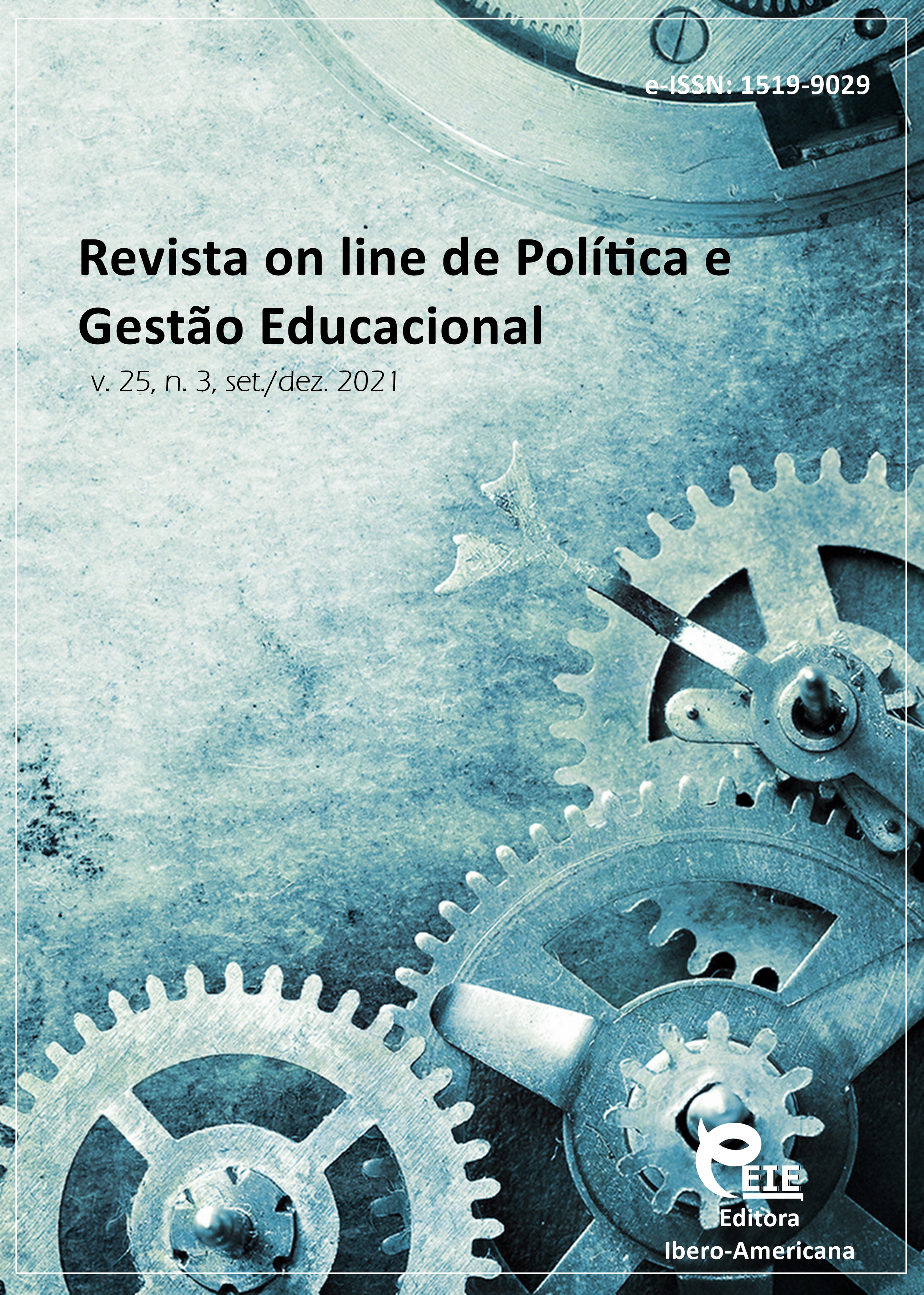Educação política sábia: características, princípios e eficiência
DOI:
https://doi.org/10.22633/rpge.v25i3.15471Palavras-chave:
Educação política, Sabedoria, Normas políticas, Papéis políticos, ÉticaResumo
A educação política significa preparar os cidadãos para aceitar papéis sociais e desempenhar deveres políticos na sociedade. A educação política sábia é um dos modelos educacionais que está enraizado na tradição filosófica da Grécia antiga e tem sido considerada por pensadores em diferentes períodos históricos. Neste modelo educacional, a institucionalização de valores e normas políticas e sociais é seguida em três áreas: individual, familiar e social da educação. Neste processo, a educação física e mental dos indivíduos começa desde a infância e eles são ensinados habilidades políticas e sociais e consciência sobre o caminho para o desenvolvimento. Ensinar virtudes morais e evitar vícios morais é a base de uma educação política sábia. A instituição da família tem a tarefa de institucionalizar valores e normas tais como amor, afeto, coragem, amizade, cooperação e Estado de Direito nas crianças. E no processo, os indivíduos estão preparados para aceitar e desempenhar papéis políticos e sociais.
Downloads
Referências
AKBARIAN, R. Relationships between religion and philosophy in the Islamic world. Tehran: Publishing Organization of the Institute of Islamic Culture and Thought, 1386.
AMERI, M. Al-Sa’adah wa al-As’ad fi al-Sīrah al-Insaniyah. Edited by Mojtaba Minuyi. Tehran: University of Tehran, 1408.
AUGUSTINE in The City of God. Edited by James Wetze. Cambridge University Press, 2012.
BAYĀNĪ, S. Religion and government in Mongol Iran. Tehran: University Publishing Center, 1370 HS.
DINANI, G. H. I. D. The story of philosophical thought in the Islamic world. Tehran: New design, 1371 HS.
FĀRĀBĪ, A. N. The views of the people of Utopia, Research, Nader Nasri. Beirut: Dar al-Mashreq, 1991.
FĀRĀBĪ, M. Punishment for the sake of happiness. Edited by Ja’far Al Yassin. Tehran: Hekmat, 1371.
HALABĪ, A. A. History of Philosophy in Iran and the Islamic World. Tehran: Asatir Publications, 1373.
HOBBES, T. Leviathan. Edited by C, B, MacPherson. Penguin Classics, 1985.
Hosseini, A. A.; QAEMI, F. Linkage the Education and Politics in Ancient Greek Political Thought. Political Research, n. 2, p. 8-25, 1390.
IBN SINA, A. A. Ar-Rasā’il (treatise on the science of ethics). Bombay: Golzar Hassani Printing House, 1318.
IBN SINA, A. A. As-Siyāsah. Cairo: Dar al-Arab, 1985.
JAEGER, W. Paideia: The Ideals of Greek Culture: Archaic Greece. Translated by Gilbert Highet. Oxford University Press, 1939.
JUWAYNĪ, A.-M. I. M. Tārīkh-i Jahāngushāy Juwaynī. Edited by Muhammad Qazwīnī. Tehran: Bamdad, 1329.
LOKE, J. Two Treatises of Government. Edited by Petter Laslett. Cambridge University Press, 1997.
MAYER, F. History of educational ideas. Translated by Ali Asghar Fayyaz. Tehran: Samt, 1374. v. 1.
MOTE’ALLEHIN, M. S. The transcendent wisdom in the four intellectual journeys. Beirut: Dar al-Īhyā al-Turāth al-Arabī, 1981.
PLATO The Republic. Edited by Christopher Rowe. Penguin Classics, 2012.
PLATO The Republic. Tehran: Scientific and Cultural Publications, 1390.
RAD, M. Y. Political Thought of Khajeh Nasir al-Din Tūsī. Qom: Book Garden, 1380.
REZAYEE, A. A. History of Iranians. Tehran: Publications of Durr, 1378.
TŪSĪ, N. A.-D. The Nasirean Ethics. Edited by Mojtaba Minuyi and Alireza Heydari. Tehran: Kharazmi, 1373.
TŪSĪ, N. A.-D. The Nasirean Ethics. London: george allen and unwin, 1964.
Downloads
Publicado
Como Citar
Edição
Seção
Licença
Copyright (c) 2021 Revista on line de Política e Gestão Educacional

Este trabalho está licenciado sob uma licença Creative Commons Attribution-NonCommercial-ShareAlike 4.0 International License.
Manuscritos aceitos e publicados são de propriedade da Revista on line de Política e Gestão Educacional. É vedada a submissão integral ou parcial do manuscrito a qualquer outro periódico. A responsabilidade do conteúdo dos artigos é exclusiva dos autores. É vedada a tradução para outro idioma sem a autorização escrita do Editor ouvida a Comissão Editorial Científica.











